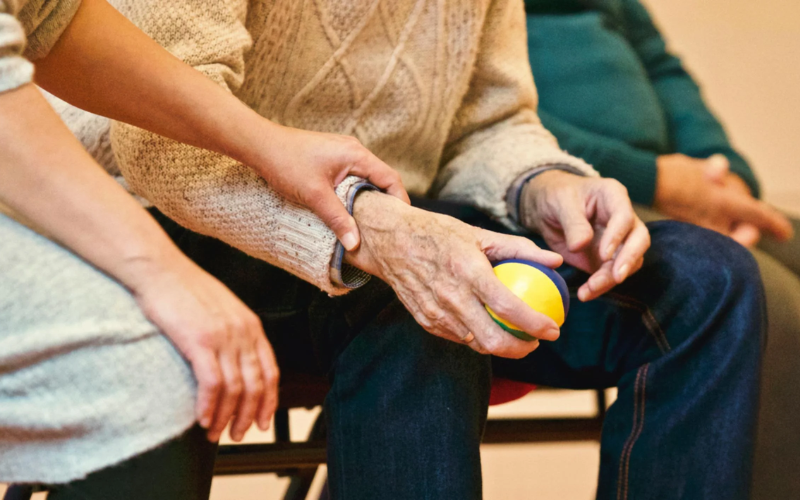Getting an elderly family member admitted to a nursing home facility is a significant yet difficult decision. Many people do so because they are unable to care for their aging or disabled family members. But others get them admitted to nursing home facilities because they are financially troubled.
More than 1.3 million elderly adults—65 years or above—in the U.S. live in nursing homes. An additional 818,800 older adults reside in assisted living facilities.
As of 2023, there were 15,003 certified nursing home facilities in the U.S. Of these, 1,195 can be found in Texas alone. With 1,170, California is the second state with the highest number of nursing home facilities. Ohio, with 946 facilities, rounds out the top three. Florida, Illinois, and New York also have around 600 nursing homes. Even in Arkansas, which is slightly smaller than the average American state, 218 facilities can be found.
While each of these nursing homes offers a safe environment for seniors, reports of nursing home abuse aren’t uncommon. However, there are several ways you can ensure your loved one’s safety in a nursing home. We’ll discuss a few of them in this guide.
#1 Visit Your Loved One Often
Nursing home residents don’t receive regular visitors. That’s a sad reality. Elderly members with few visitors or without close family ties are more likely to get abused by nursing home staff.
There’s no better way to ensure your elderly family member’s safety in a nursing home than by visiting them regularly.
Regular visits will help you understand the atmosphere of the nursing home. You can also discuss different aspects of the facility with your loved one. Ask them about the comfort and cleanliness of their room and the whole facility. Inquire about the quality of their food and whether they are served what they like. Be sure to also ask about the attitude of the staff.
Consider visiting the nursing home at different times. That way, you will be able to spot inconsistencies in caregiving.
#2 Watch for Signs of Abuse
Visiting your loved one at a nursing home won’t be of any use if you fail to recognize signs of abuse or neglect.
Watch for unexplained injuries, cuts, or bruises. These could suggest physical abuse. Be sure to observe their behavior, too. Changes in behavior, such as depression, fearfulness, or withdrawal, might be suggestive of psychological or emotional abuse.
Pay attention to hygiene and living conditions. Unsanitary surroundings, soiled clothing, or unkempt appearance signal neglect. If you notice any of these, there’s a high possibility that your elderly loved one has been abused.
Other signs of inadequate care include dehydration, unexplained weight loss, and medication mismanagement. Document everything you observe in the facility and report your observations to the nursing home management or relevant authorities.
#3 Install a Camera to Monitor Them
Monitoring and surveillance technology have proved invaluable in enhancing the safety and security of loved ones at nursing homes. Consider using them if you suspect signs of abuse in your elderly member.
Install a wireless hidden camera in their room, so you can monitor them anytime and anywhere. Get one that records footage 24/7. That way, you can always check the recordings. In case of abuse, the recorded footage will serve as evidence. You can file a personal injury lawsuit on behalf of your elderly family member and use the recording as evidence.
However, be sure to check your state laws to see if you’re allowed to install a camera in your elderly family member’s room. Washington, Texas, Oklahoma, New Mexico, and Illinois are states that allow cameras in residents’ rooms in the nursing home. Iowa also permits cameras in nursing homes.
Regardless of consent, Hawaii, Georgia, California, and Arkansas prohibit hidden cameras.
Arkansas, however, allows cameras in private places but only with the consent of the individuals being recorded. That means you can install a camera in your loved one’s room if they consent. In case the caregiver abuses them, you can share the recordings with an attorney and sue the nursing home facility.
Keith Law Group asserts that a nursing home facility or its staff can be held accountable for any damages incurred by your loved one due to negligence. Consulting a lawyer can help you understand how to go about filing a personal injury lawsuit.
If your elderly family member is in a nursing facility in Rogers, Arkansas, search for the best Rogers personal injury lawyer. Likewise, if they are in Fayetteville or Little Rock, search for the best personal injury attorney in that city.
Share the evidence with your lawyer. They will help you build a solid case, proving the nursing facility’s or staff’s fault. Thus, you will recover damages without much difficulty.
To wrap things up, elder abuse is common in nursing homes. It’s your duty to take a proactive approach to ensure their safety. If you’ve already admitted them to a nursing home facility, these tips will help you create a secure environment where your family’s elderly members can thrive.
But, if you’re yet to admit them, thorough research can help you choose a safe and secure facility. Be sure to choose a facility with a solid reputation for providing high-quality care. Also, make sure the reviews are positive and the facility is licensed and accredited. The risk of neglect or maltreatment will generally be low in such facilities.




